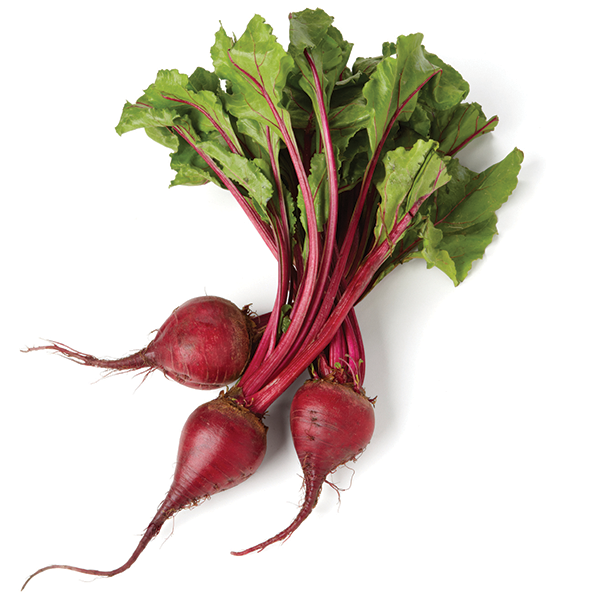
Beets make up just a fraction of organic produce sales, but their popularity continues to grow. Beets have risen in popularity as paleo, primal and gluten-free diets promote them as a nutrient-dense side dish. Their low price point makes them the perfect entry point for consumers unfamiliar with organics.
Organic beets appeal to environmentally conscious consumers who are also health conscious. Play up organic beets’ nutritional benefits as well as the fact that they are sustainably grown.
Include organic beets in winter soup displays with other organic soup vegetables and broths. Organic beets can also be added to salads so pair them up with some organic salad mix offerings. They are a popular juicing item, so create an organic juicing promotion and include beets.
Organic beets are available in both gold and purple colors. Stock both to create an attractive organic beet display. Consider displaying organic beets next to their conventional counterparts. Organic beets have a lower price point than many organic items, and consumers may choose to grab the organic option when presented with both together.
Leaving the tops on organic beets give them a fresh-from-the-field look. Keep beets cool and moist by using misters in refrigerated cases.
Consider offering organic chiogga beets. Chiogga beets have striped flesh and can be a popular item to market to parents. Their fun interior and extra sweet flavor make them a great item to serve children.
Include recipes and preparation tips on the display. Many consumers may be unfamiliar with how to prepare fresh organic beets.
Shipping
Organic beets are most often shipped in 25-pound or 24-count cartons.
Grades
U.S. No. 1
U.S. No. 2
For each grade, three types are designated:
Handling
Good-quality product will be relatively smooth and firm with dark color and unblemished skins. Tops should be young, clean, fresh and tender.
Bulk beets should be fresh and dirt-free. Any dry or damaged leaves should be removed. Avoid beets that are shriveled, soft or have flabby skins.
To avoid damage, store them in pallet boxes or crates rather than bulk containers. Early- or new-crop beets usually are sold in small bunches with tops attached. Late-crop beets usually are sold topped. Beets are subject to wilting because of rapid water loss and should be kept in sufficiently high humidity. Small beets soften and shrivel faster than larger ones. Before storage, beets should be topped and well-sorted to remove diseased items and those with mechanical injuries. Sorting out suspect specimens will prevent undue shrinkage because of storage decay.
Temperature: 32 F, 0 C
Relative humidity: 98-100%
Mist: lightly
Typical shelf life: 30 to 90 days, 10 days for bunched beets
Somewhat sensitive to freezing. Can be lightly frozen several times without sustaining serious damage.